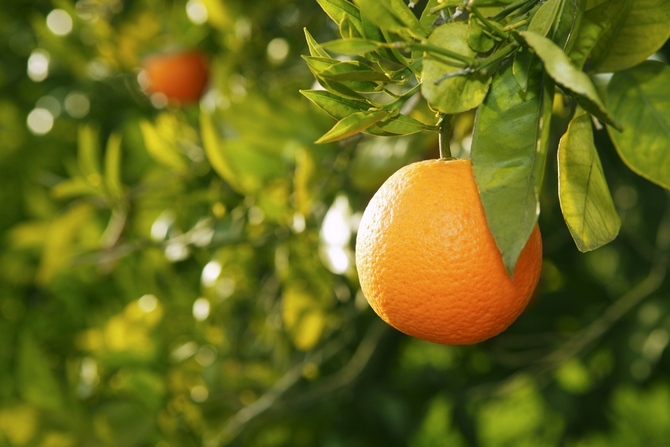If you have a canine companion, you may have found yourself wondering whether oranges and other citrus fruits are okay for them to consume. The short answer is yes. Oranges, clementines, tangerines, and other types of citrus fruits are not toxic to dogs. Intuitively, some dog owners might think that the high levels of citric acid in these types of fruits could be harmful. However, the canine’s digestive system is quite well-equipped to handle a reasonable amounts of citric acid.

Having said this, feeding dogs orange peels is not recommended. Only the flesh of the orange is safe. Orange rinds are very hard for their digestive system to process. Feeding your dog orange peels in any amount could result in gastrointestinal upset. Furthermore, orange seeds are not recommended for canine consumption. Pet owners should be sure to pick out all seeds before giving their dog an orange slice. The pith of the orange is okay for dogs, as it is high in fiber and lower in citric acid.
It may come as a surprise to dog owners that the greater concern when feeding citrus fruits to dogs, is the fact that they are quite high in sugar. High sugar fruits can cause gastrointestinal upset in dogs when consumed in large quantities. The high sugar content of most fruits can also lead to obesity if given in large amounts. The key to feeding dogs citrus fruits is to practice moderation. Veterinarian David Dilmore recommends that you feed your dog a maximum of two orange segments each day. And this recommendation should be lowered if you plan on feeding your dog other types of fruit. In the correct quantities, orange slices can provide a healthy amount of vitamin C which can boost your dog’s immune system.

However, this added vitamin C dose is almost never necessary for dogs that eat a balanced and complete diet. And too much vitamin C can be harmful to dogs because their system is already very efficient at producing it. Furthermore, there are plenty of fruit-flavored dog treats available in pet stores and that might be the wiser choice when treating your pet. Also, pets who are diabetic should never be fed oranges or other types of fruit as they are too high in natural sugars.
Oranges should be thought of as a treat, rather than as a staple in a dog’s diet. A healthy pet diet includes a maximum of 10 percent of calories from treats per day. This means that if you are introducing treats into your dog’s daily diet for the first time, you should reduce their regular food intake by 10 percent in order to compensate for the added caloric intake. This advice applies to most types of pets, not just canines. Pet owners of cats and small animals should aim to provide only 5 to 10 percent of their food intake in the form of treats.
Just because it is safe for dogs to consume oranges and other citrus fruits, does not mean that all fruits and foods are safe for dogs. There are a few notable exceptions that are important for dog owners to remember. Grapes and raisins are widely considered to be potentially toxic to many types of pets, including dogs. The fact that chocolate is toxic to dogs is fairly well-known. Other foods that are especially dangerous for dogs include certain types of chewing gum and candy, coffee, corn on the cob, raw salmon or trout, macadamia nuts, onions, peach or plum pits, and yeast. Dogs should never consume apple seeds, bitter almonds, or fruit pits, as they contain a chemical that releases cyanide when digested. There are many other types of foods that in larger amounts can cause vomiting and other harmful symptoms. Pet owners should always conduct research before feeding their pet a new food. And as was previously mentioned, even safe foods should only be fed in moderation with the bulk of a dog's diet being made up of fortified dog food.
There are also many foods that are safe for dogs to eat. These foods are better for them than oranges; however, still should only be doled out as an occasional treat. Watermelon, honeydew, and cantaloupe are all healthy treats for dogs. Berries, apples (no seeds), carrots, peanut butter, bananas, green beans, and cooked chicken are all healthy examples of treats you can share with your dog. Cheese is also okay, provided your dog is not lactose intolerant.